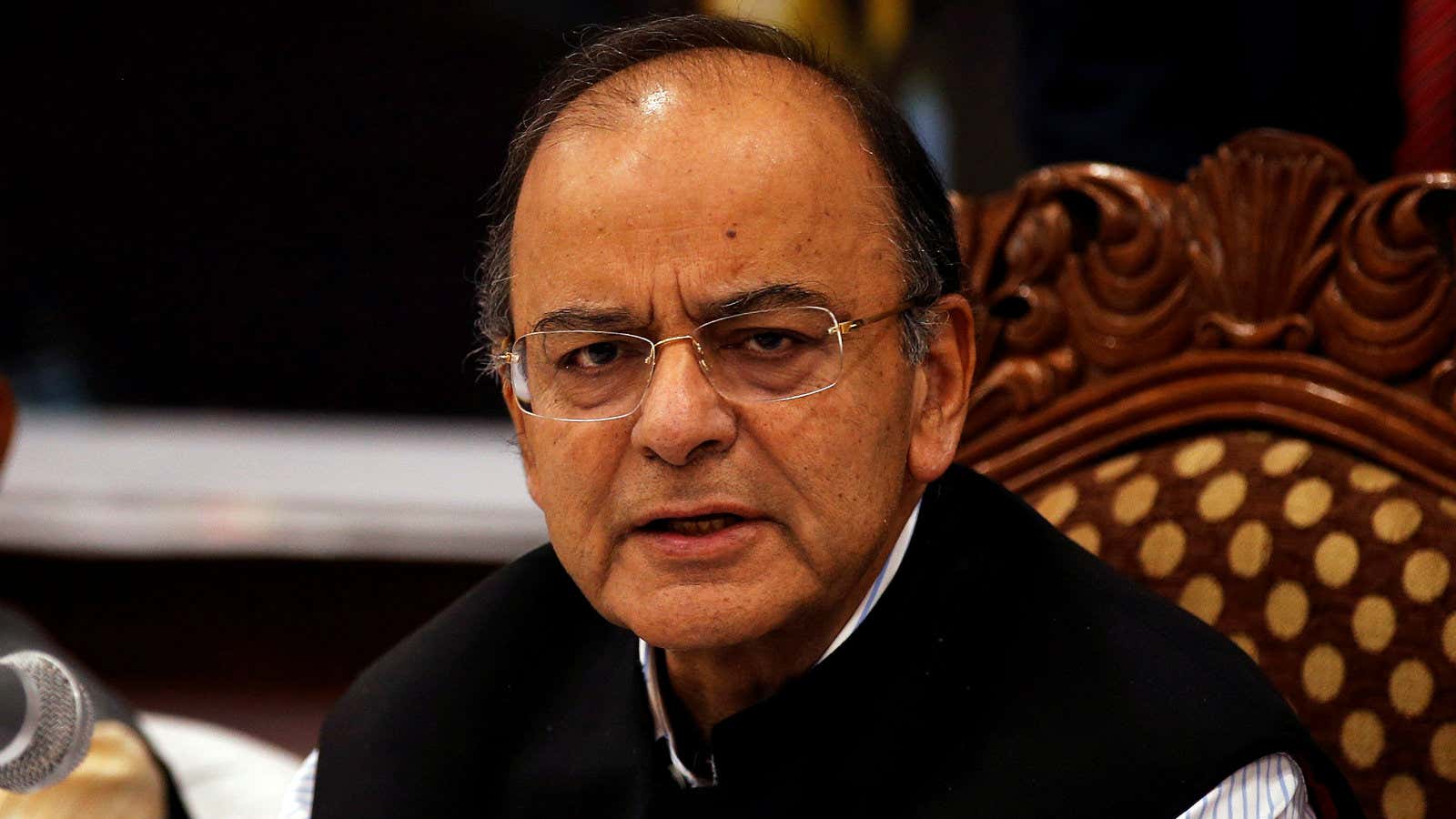Before finance minister Arun Jaitley unveils this government’s last full budget ahead of the 2019 general elections, individual taxpayers have one big question: will there be any relief by way of a lower tax burden?
Despite expectations, the finance minister has to maintain a balance. On one side is rising fiscal deficit, gathering more steam from increasing crude oil prices. On the other are ordinary taxpayers who weathered numerous changes—demonetisation, the goods and services tax (GST), and Aadhaar-linking—and are now waiting to reap the benefits.
In his last budget speech, Jaitley had gone to the extent of voicing his concerns that, under the present system, only honest taxpayers continue to bear the brunt. But post-demonetisation, the GST, and improved data mining (by linking Aadhaar with PAN, bank accounts, etc.), the government should now have the required tools to expand the tax net.
The finance minister, hopefully, will be able to leverage the benefits of these changes and allow them to percolate down to the salaried class. The following measures would be welcome:
Rationalise the tax rate below Rs10 lakh: Currently, individuals with an income of between Rs2.5 lakh and Rs5 lakh are liable to pay tax at 5%. The rate applicable for income between Rs5 lakh and Rs10 lakh jumps to 20%—rather steep. The government could reduce this to 10%, applying the 20% and 30% slabs to incomes exceeding Rs10 lakh and Rs15 lakh, respectively.
Re-introduce standard deduction from salary income: Deductions available to salaried employees are limited when compared to self-employed professionals. For instance, those in the latter group with gross receipts (i.e., sum of all fees for services) of up to Rs50 lakh can opt for presumptive taxation, allowing them a deduction of 50% of the gross receipt. To ensure parity for the salaried taxpayer, the government may consider re-introducing an inflation-adjusted standard deduction from salary income, which was withdrawn in the 2006 budget.
Increase in housing loan interest deduction: Salaried individuals depend on home loans to be able to purchase property. The current deduction, restricted to Rs2 lakh, does not generally cover the actual interest paid by the taxpayer. Given the cost of housing, it would be useful if Jaitley can increase this cap to Rs3 lakh, which will also help the real estate sector.
Re-introduce deduction for investment in infrastructure bonds: The minister could re-introduce this instrument, which was only available for two financial years, 2010-11 and 2011-12. It would also help taxpayers if the deduction limit was enhanced to Rs40,000 or higher.
Crèche facility at workplace: The Maternity Benefit (Amendment) Act made it mandatory for employers with 50 or more employees to provide a crèche facility from July 01, 2017. While this is a welcome move for working mothers, there is no clarity on the taxation on such facilities. The government could make it clear that it is not a taxable benefit akin to the erstwhile fringe benefit tax regime (a tax payable by employers for benefits given to employees).
The finance minister could also allow specific deductions based on the number of dependent family members (parents, children, and spouse) as allowed in some developed countries.
Jaitley carries a double-edged sword. Will budget 2018 fulfil the ordinary taxpayers’ expectations, or focus on countering the rising fiscal deficit? Stay tuned for Feb. 01.
The views expressed are personal. Nishant Kumar, associate director, PwC India, also contributed to this article. We welcome your comments at [email protected].
